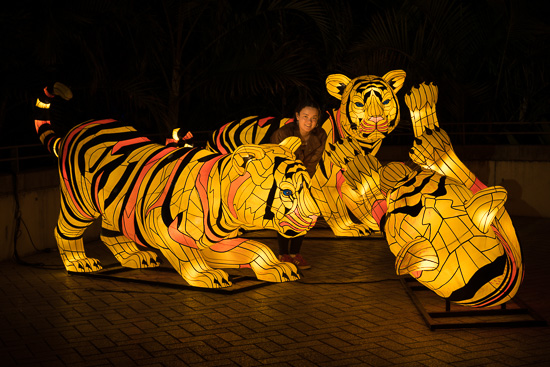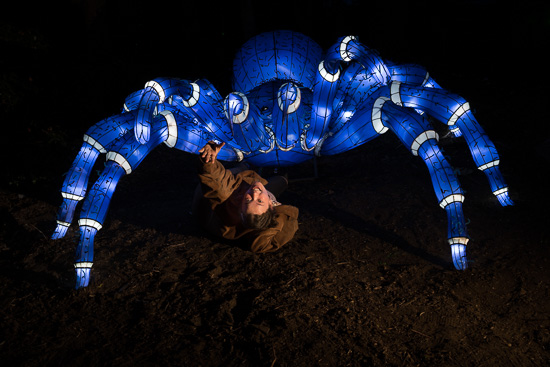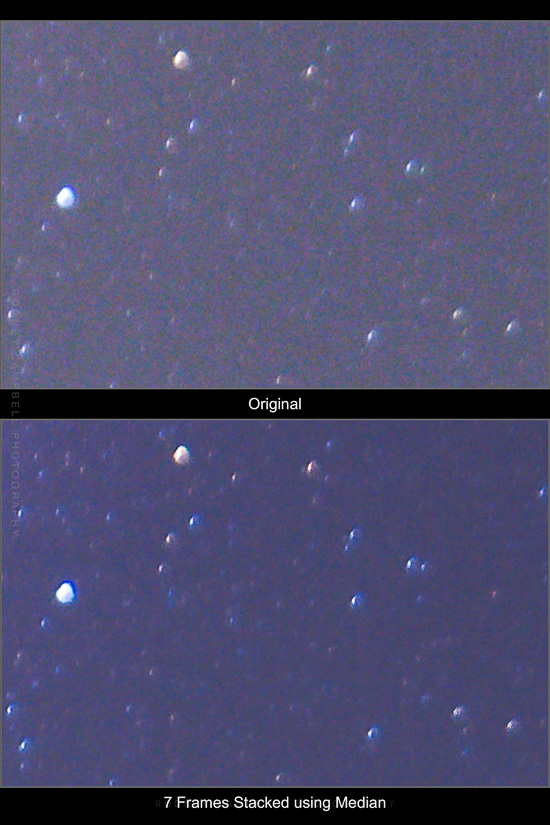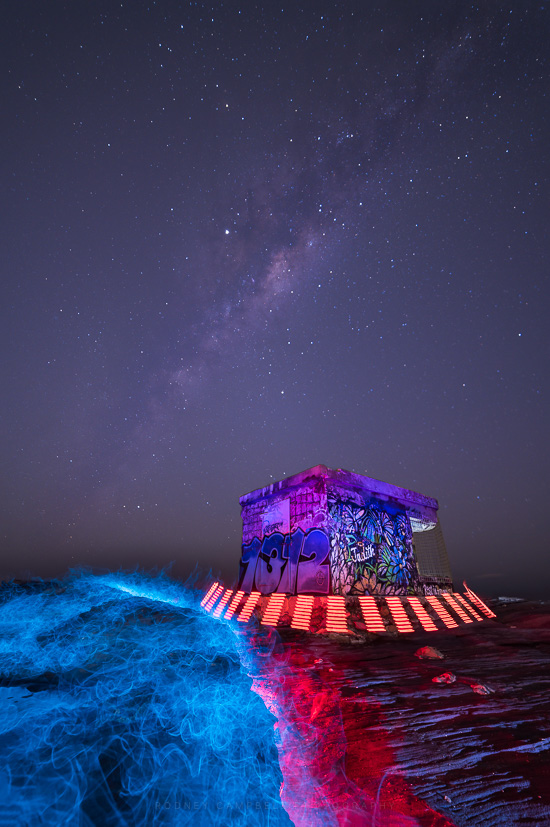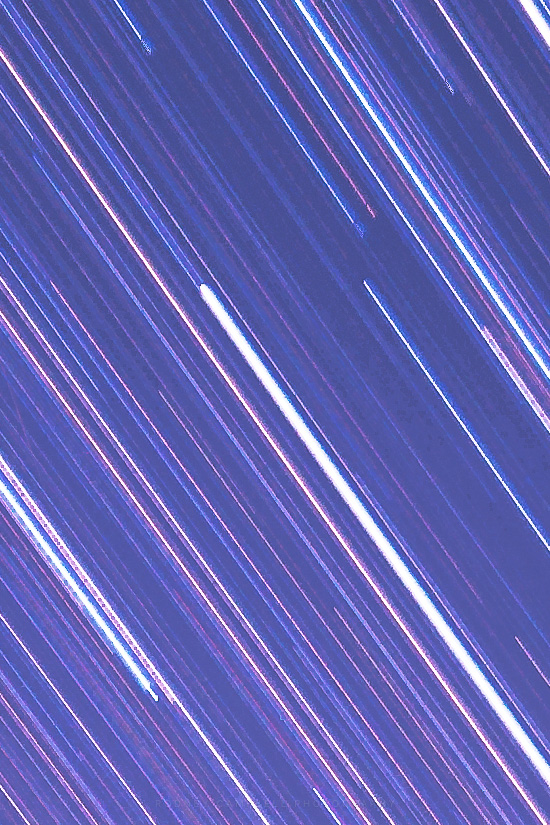Archive for May, 2019
Cubs at Play
by Rodney Campbell on May.20, 2019, under Life, Photography
Cubs at Play
Note: These photographs (especially the wider shots) look much better when larger. To see larger versions in an inline overlay slideshow gallery viewer click any of the images.
This is one of the new light sculptures at Lights for the Wild at Taronga Zoo this year
My daughter’s out there frolicking with the three gorgeous and playful Sumatran Tiger cubs. This new installation has been created this year to celebrate the birth of Kartika’s three new cubs
Vivid Sydney and Lights for the Wild opens this Friday the 24th May and runs to 15th June 2019
Arachnophobia
by Rodney Campbell on May.20, 2019, under Photography
Arachnophobia
Note: These photographs (especially the wider shots) look much better when larger. To see larger versions in an inline overlay slideshow gallery viewer click any of the images.
It’s almost Vivid Sydney time again. This Friday the 24th of May Sydney will light up again for the annual Light, Music and Ideas festival
My daughter and I were lucky enough to attend a preview night last night at Taronga Zoo. Unfortunately I’m not sure she’s going to make it out… 🙂
Ample Projects and Taronga have outdone themselves again this year with Lights for the Wild. A dazzling array of illumined giant animal lanterns on a trail winding through the Zoo precinct
Stacking Stars for Less Noise
by Rodney Campbell on May.17, 2019, under Life, Photography
Stacking Stars for Less Noise
Here is a very close up shot of a small portion of yesterdays image of the milky way. These crops represent significantly less than 1% of the overall original frame
The top part is from the single 15 second exposure at ISO 3200. No colour noise reduction has been applied. You can see there’s a fair bit of noise in the image (especially when viewed here at 100%)
The lower part is the result of stacking the seven (7) shots I took. Each of those frames was the same 15 seconds at ISO 3200. When aligned and averaged in software it noticeably reduces noise. However it still retains the sharp pinpoint stars
Stacks of Stars – For Less Noise
by Rodney Campbell on May.16, 2019, under Life, Photography
Stacks of Stars
Something Gerry suggested whilst we were shooting some static milky way shots this evening
Stacking a number of short exposure star images together for less noise and better stars
It is something I’d heard of before, and a technique I knew was used in astro photography. However I’d never used it myself
So I dutifully took a sequence of short (15 second) static milky way frames… to later look at in post processing and ignore and move on 🙂
However in post… I was going to blend this (219 sec) light painted foreground shot with a nice static milky way shot. I’d need to do this because the stars were not pinpoints but long trails in a 219 second exposure
Since I was already going to photoshop to do the blend I figured I might as well try stacking my star stacks
The process is basically simple:
- Open your short star images as layers in photoshop
- Mask out the foreground (on all layers) (so they don’t affect the next step)
- Align all the layers so the stars are all aligned (I used auto align layers for this but you may have to manually align)
- Remove the masking on the foreground
- Stack all of the star layers as a Smart Object
- Set the Smart Object -> Stack Mode to Median
The end result is an image with sharp stars but with far less noise than a single image
46MP – 100% Stars
by Rodney Campbell on May.14, 2019, under Life, Photography
The Nikon Z7 is an extremely high resolution camera – certainly the highest I’ve used or owned myself. It clocks in at a whopping 45.7 Megapixels (lets call it 46MP). That is a frame resolution of 8256 x 5504 pixels. This makes it nearly double that of my previous camera (the Nikon D750 @ 24MP)
This has some shooting and post processing implications as I’ll briefly highlight below
First however the image here is a 100% crop of a tiny portion of my star trails image from the previous day. This represents just under 1% of the overall original image area
100% Stars
So what are some of the shooting implications of such a high resolution sensor
- diffraction kicks in a lot earlier – around f/5.6 to f/8 – which for a landscape shooter is important for depth of field considerations
- when shooting astro (static stars/milky way) the longest shutter speed before you see trailing stars is shorter
- The old 600, 500 or 400 rules (where you divided that number by the lens focal length) don’t apply anymore. They may have worked when we had 6MP cameras. These days however you have to account for things like pixel pitch and aperture to determine the maximum shutter speed to keep star motion to a minimum number of pixels
- The so called NPF rule: (35 x aperture + 30 x pixel pitch) ÷ focal length = shutter speed in seconds
- long story short – for the 24MP D750 @ 14mm you can shoot for 19s; for the 46MP Z7 @ 14mm it’s now 15s
- handholding camera technique becomes more important (sharpness of images). Though the built in 5-axis IBIS (In Body Image Stabilisation) in the Z7 gives you automatic stabilisation (4-5 stops) to every lens
- the potential to push the limits of weaker lenses (more easily show their flaws)
